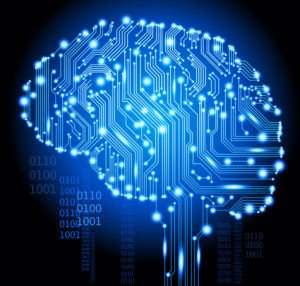Have you ever wondered why it’s so hard to understand yourself?
Here is a reason science gives us:
Our brains did not evolve specifically for the purpose of self understanding.
If you believe in evolution, the answer is straightforward. Human brains evolved in order to guarantee survival. Early on, human brain development evolved in order to overcome large animal attacks, and to ensure food when supply was scarce. This was a world built on survival of the fittest, or competition. Definitely, this was not a time for self reflection or self understanding.
If Needed, Our Brains Can Adapt
That can change, however. The human brain is first and foremost interested in its own survival. And if its survival depends on greater self understanding, it will strive to understand itself.
My opinion is that we’ve reached a point where self understanding is essential for not only guaranteeing survival but for ensuring progress.
The Brain Versus The Computer
Physicist Ray Kurzweil has demonstrated the probability of how the computer will have greater intellectual power than the human brain by mid-century.
We (our brains) have to do a lot of introspection to decide if that is what we want. If something is smarter than our brains, it’s logical we’ll use it instead of our brains. Is that what we (our brains) want?
Speaking for myself, I don’t want that to happen.
I have thought of several ways to overcome this.
One, we could shut down all of the computers, and go back to all human calculating.
I’ve opted not to support this strategy. We have come too far with the computer to shut it down at this point. For example, I owe my health to computerized cameras and microscopes that have located and burned out possible tumors in my body.
Two, we could put more capacity into our own brains to stay ahead of the computer. For example, we could plant microscopic computer chips in our brains to give our brains greater and greater computing power.
I don’t like that option either. At a certain point, our brains would burn up. Our cranial cavity evolved to be a certain size so it could think without burning up too much energy. Overload it and we will melt. No thanks.
Three, we could start growing a different kind of head and body that could look and function more like a computer.
Please, I don’t want to look like a computer.
Peace Treaty With The Computer
Well, what’s left?
We could have a kind of treaty with computers. When computers become more intellectually powerful than we are, we could have an agreement with them that they would not take us over.
I like that idea, but I don’t know if it will work. Remember Stanley Kubrick’s epic movie, 2001 Space Odyssey? Hal, the computer, was given a secret mission to go to Jupiter, but not tell the crew. To overcome the dilemma, Hal decided to kill the crew. The crew finds out, and the battle for survival is on. Computer versus human.
When you are stronger, there is too much temptation to break promises.
I’m almost tempted to say, “I’ll just have faith and let God figure this one out.” But, then I say, “When are we going to grow up, and figure things out for ourselves?”
See What I Mean?
Our brains need far more self understanding to figure how best to relate to the ever growing intellectual power of computers.
Here’s another idea. Why don’t we think of trying to understand the combined power of all of our brains put together, and coordinate them to solve really big problems?
One of the newest theories in the study of evolution is the importance “cooperation” played and plays in the quest for human survival. We not only compete to survive, we cooperate to survive.
I don’t find many places in the world where people don’t want to get along with Americans. For example, our integrated economies cause us to cooperate at the highest levels of banking and finance worldwide.
Remember the Greek election a couple of weeks ago. Essentially, the Greeks understand that their best chance of recovery is to continue to cooperate with Europe, even if it means further sacrifice on their part. They voted to continue using the Euro currency even in the face of prolonged struggle. Their best chance for recovery now resides in cooperating, not pulling out and going it on their own.
I believe our best path for progress in the future is to ensure a high degree of goodwill and cooperation among the people of the entire world. In the process, we should continue to develop technology that involves highly sophisticated computer software that bends in the direction of cooperation, not competition.
Then, when computers evolve to an intellectually superior place to the human brain, they will have been developed to cooperate with us, not to compete with us.
The Universe Awaits
If that occurs, there probably won’t be anything we can’t accomplish in the vast universe that awaits us. For that to take place, it will take a great deal of self reflection and self understanding, which at the end of the day will include an insight that our progress today depends far more profoundly on cooperation than competition.
